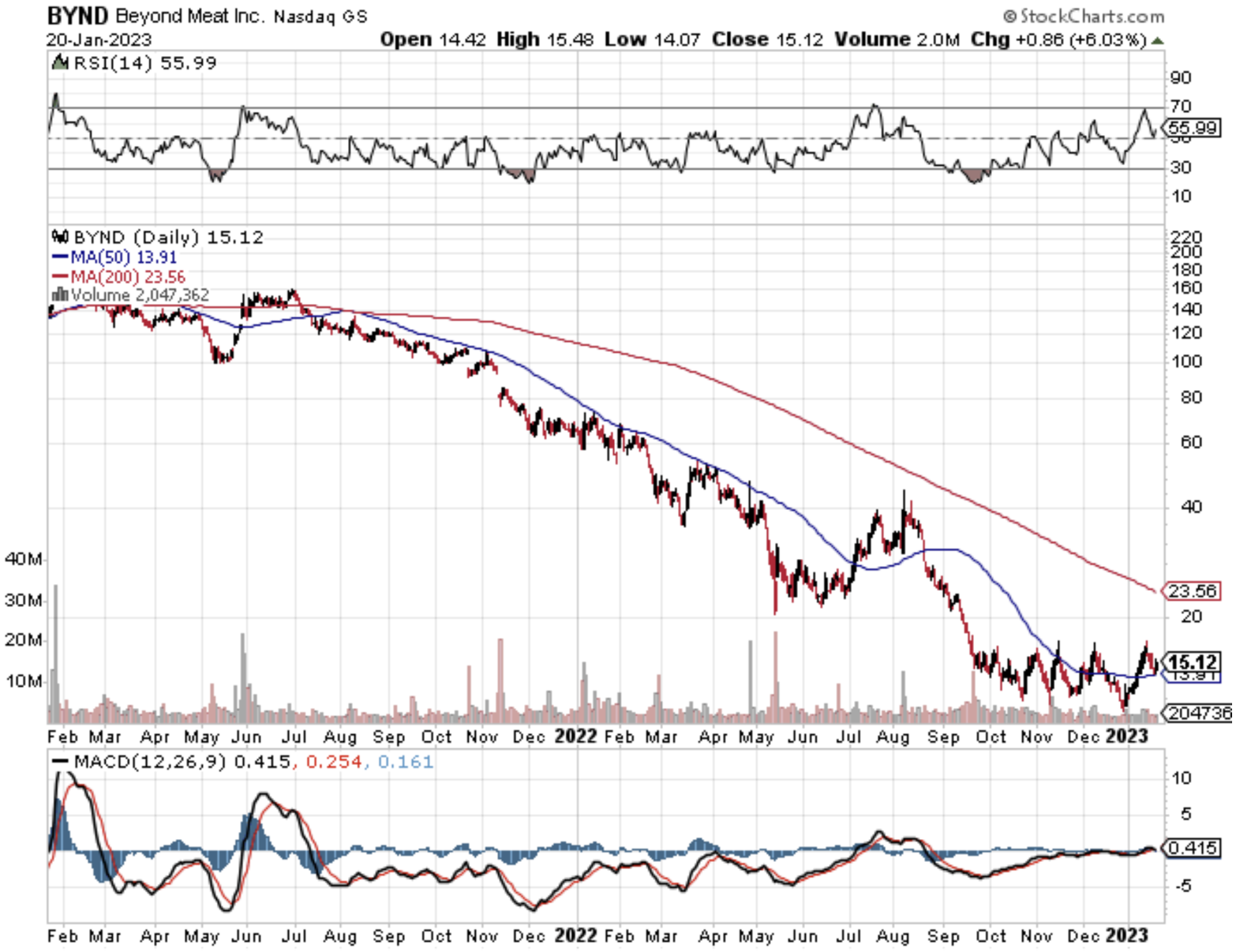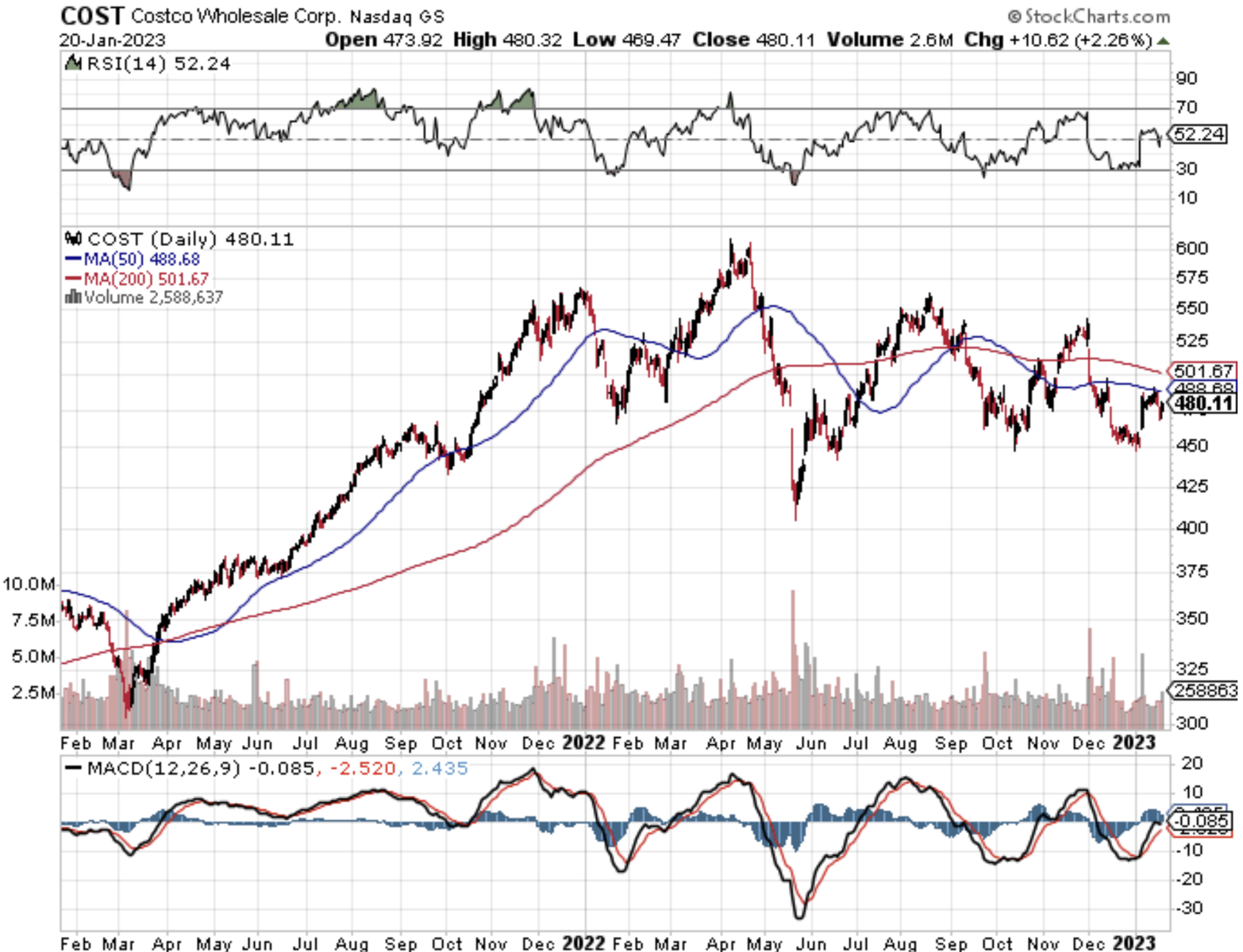Plant-Based Meat Is A No Go
I am not going to say that plant-based meat is a fraud, but it’s about as close to being a fraud one can be without it being one.
That’s a harsh analysis of an industry that once shone brightly just a few years ago and branded itself as a food technology company.
I can say there is not much technology happening in this product either.
The idea of plant-based meat replacing animal-based meat would need to overcome Americans’ thirst for the old-fashioned red meat that attaches itself to such iconic cultural events like the Super Bowl and the barbecue in the backyard.
That’s something I wouldn’t bet on at least in the next 50 years.
The leader in the industry Beyond Meat (BYND) has been executing pretty poorly and performing poorly as well.
This fake meat thing doesn’t seem like it will stick well with the median American consumer.
Remember that the CEO of Beyond Meat Ethan Brown swept us up with all these buzzwords explaining how fake meat was about to change the world.
Looking at some of his old speeches, it feels eerily similar to former Theranos CEO Elizabeth Holmes who was convicted of fraud in a California courtroom recently.
Brown's reason why Americans needed to start eating fake meat was that his mission demanded the urgency and scale the US mustered for World War II and that his products would simultaneously help solve heart disease, diabetes, cancer, climate change, natural resource depletion, and animal welfare.
Although not an outright lie, his words stretch the truth to the point of sounding idiotic. He might as well blame gas stoves for Americans not eating plant-based meat too like the recent political fad.
Then there is the obvious question of instead of eating “plant-based meat,” why don’t consumers just eat plants or just eat meat?
Case solved.
Why complicate such simple concepts?
Then there is the clout of big meat industry.
During government lockdown, meat companies did extraordinarily well and they still are banging out the top-line revenue like it’ll never go out of fashion.
The lockdowns meant there was a shortage of meat and Americans stored huge supplies of the product even buying a second fridge to accommodate the grandiose supply of reserve meats.
Now, Bidenflation has caused cuts of pork, beef, and chicken to skyrocket, but consumers are still buying.
Supermarket sales of refrigerated plant-based meat plummeted 14% by volume for the 52 weeks.
Orders of plant-based burgers at restaurants and other food-service outlets for the 12 months that ended in November were down 9% from three years earlier.
Beyond lost sales in almost every channel last quarter. Over the past year, it laid off more than 20% of its workforce.
None of the biggest fast-food chains that had announced partnerships with Beyond—KFC, Pizza Hut, and most importantly, McDonald’s—maintained a single permanent item on their US menus.
Even vegans don’t like eating this fake meat stuff and rather stick with real vegetarian food like lentils, avocado, tofu, beans, and hummus. Vegetarian Indian food like certain Indian curries is way better than any fake meat garbage Beyond can deliver to the consumer.
Even John Mackey, co-founder of Whole Foods Market Inc.—the grocer that had been instrumental in introducing the category—went on the record calling plant-based meat “super, highly processed foods.”
The secret is now out that this fake meat could be more harmful than real animal-based meat and at the very worst, the same grade of unhealthiness.
The momentum has dried up for fake meat and convincing Americans to substitute real beef for fake beef is like convincing an American to live in a tent and describe it as a newly built Toll Brothers home.
The fake meat industry loved to give analogies of how the milk industry created alternative milk like almond and soy that consumers gravitated towards.
However, they fail to mention that dairy products cannot be consumed by lactose-intolerant consumers and milk’s primary use as an ingredient, not a main course.
In the summer of 2019, BYND was trading at $200 per share which coincided with the height of its stardom.
Now shares are a bottom basement at $15 per share and the market cap is below $1 billion.
This is a poor company to invest long-term and shares will only move up in the short-term as the market senses a Fed pivot, but after that sucker's rally, investors will get out while they can as this fake meat industry is the new snake oil salesman of 2023.
Instead of buying fake meat technology companies, stick with stocks that sell real food like Costco (COST).




